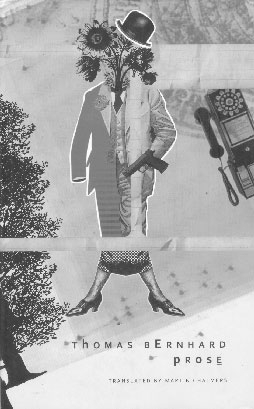Thomas Bernhard was one of the most significant voices in twentieth century Austro-German literature, and one of the most striking writers in the modernist tradition. Yet he remains little known to the outside world, partly because his long, allusive, fevered sentences are tough to translate. Martin Chalmers has done a commendable job of conveying the strangeness of the original without losing clarity and continuity. Bernhard believes in beginning his stories as if he is dunking the reader’s head in a barrel of free-zing water: often there is no introduction or prolegomena, just a breathless explosion of words and a sustained, headlong rush to con-clusion. Certain images recur like fragments of nightmare: the forking road, the forestry offi-cial, the cap, the tiny shuttered room, the shot through the head. Nearly every story is in the first person; each voice is unique, yet unmistakeably Bernhardesque.
Growing up in bleak, post-war Austria, burdened with the stigma of illegitimate birth, an absent father and emotionally cold mother, Thomas Bernhard acquired a gift of sight that simultaneously tortured and saved him. His hatred of mental and physical ugliness and his horror of the stultifying petty-bourgeoise life of his class added vitriol to his writing. The one bright spot in his early life was his grandfather, also a writer, whom he watched die from the bungling of doctors. Bernhard too struggled lifelong with the tuberculosis which ultimately killed him. For him life itself was so much of a struggle that he was constantly looking over the edge of reality into the big truths of death and birth, freedom and captivity, crime and puni-shment. Not for him the complacent routines and threadbare philosophies of his fellow townsmen. Like Dostoyevsky, he regards the world as a crime, and not necessarily one that can be solved. This may have something to do with his having worked as a court reporter for a time, but is more likely to be a funda-mental part of his artistic temperament. Thus his memoir is titled Gathering Evidence, and the crime he gives evidence for is the entire structure of middle class crypto-Nazi Austrian life. Again and again he documents how this structure crushes the sensitive, the artistic, the philosophical and the insightful under its caterpillar-tracked wheels. In his incredibly painful capacity to perform surgery on the human psyche, he makes Kafka look like an optimist.

